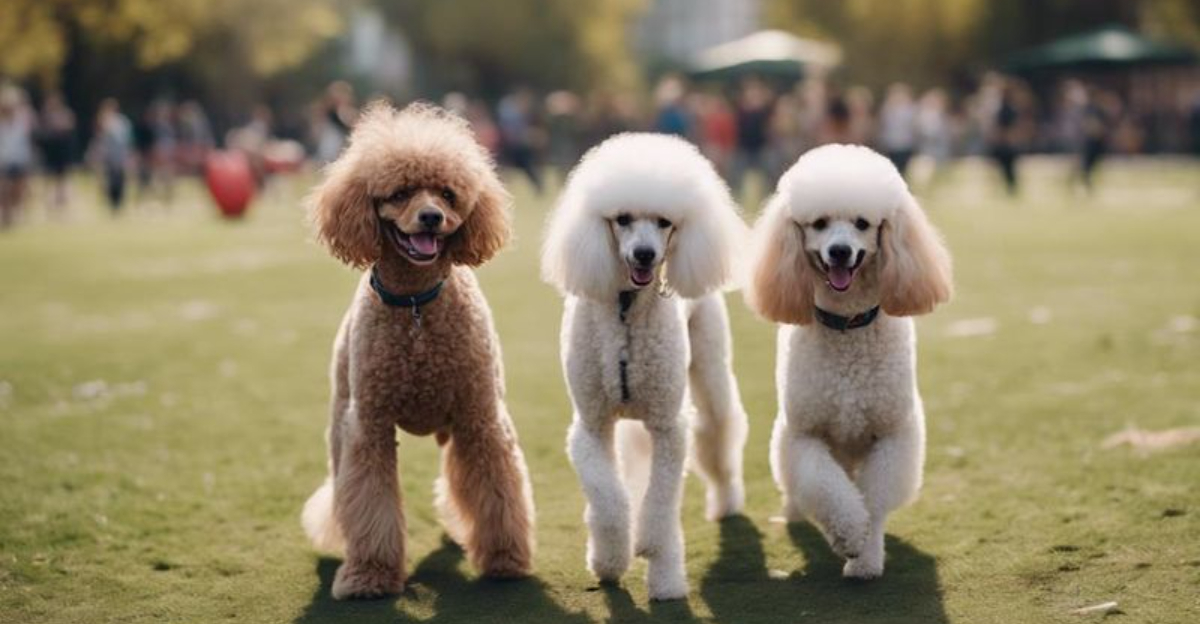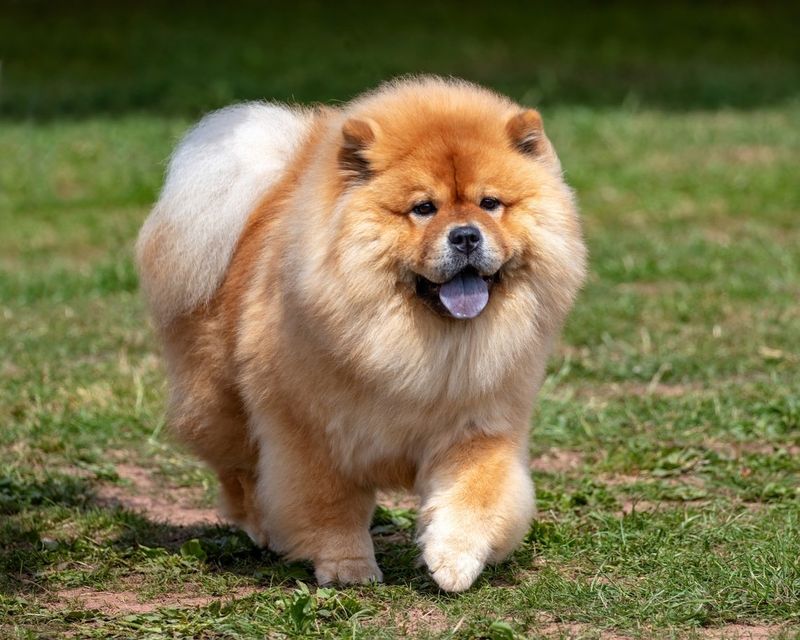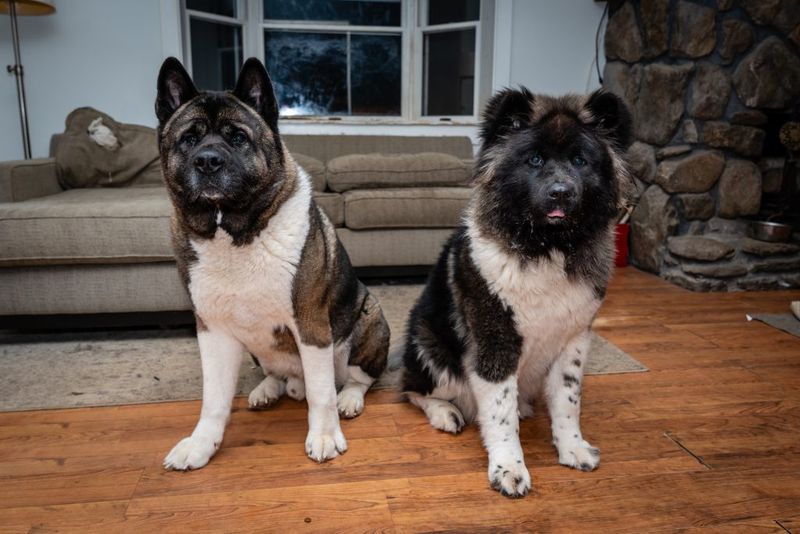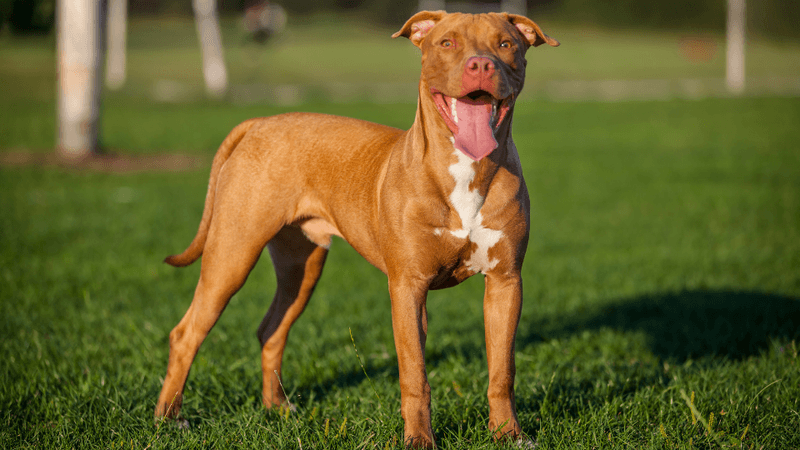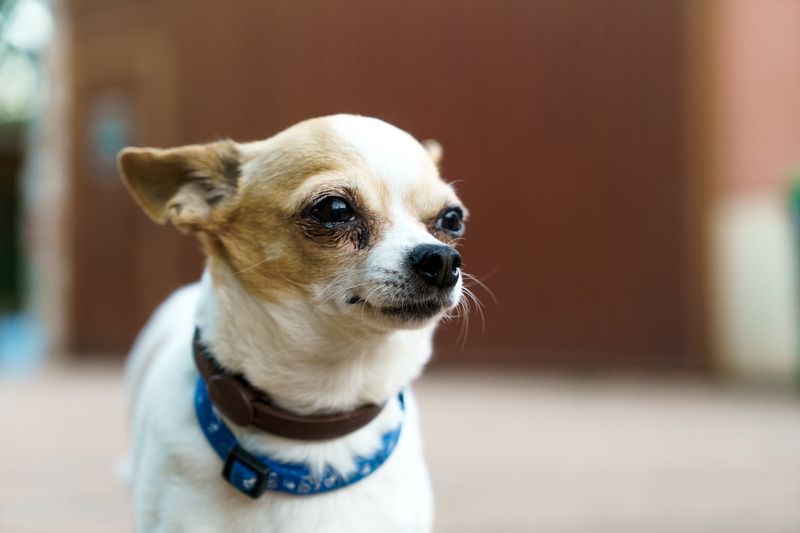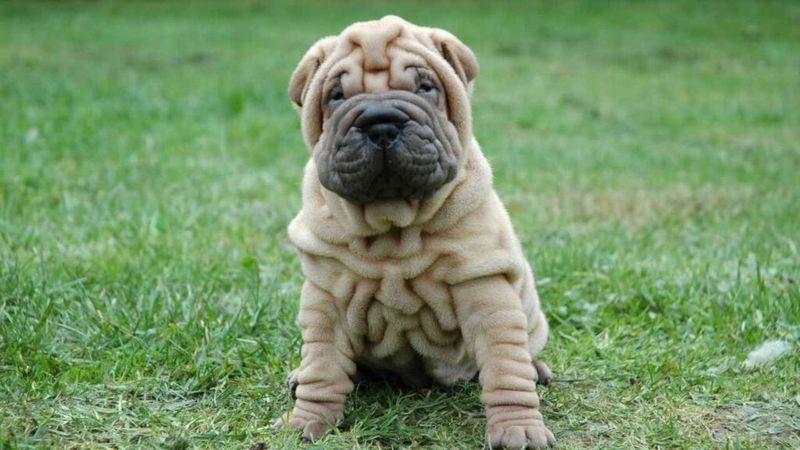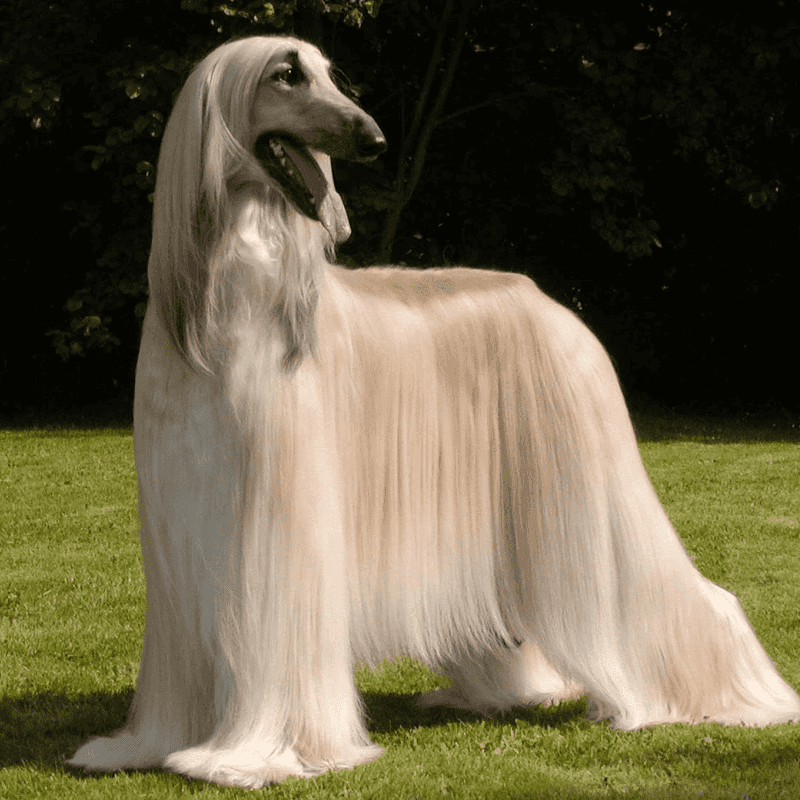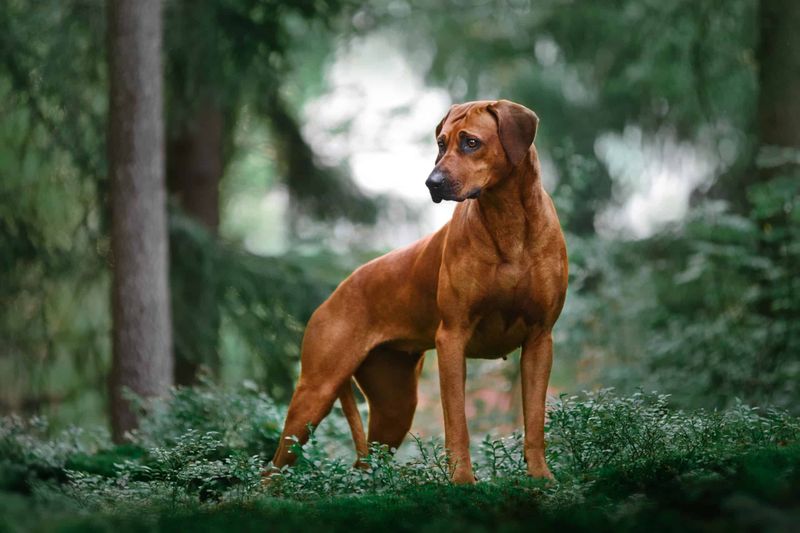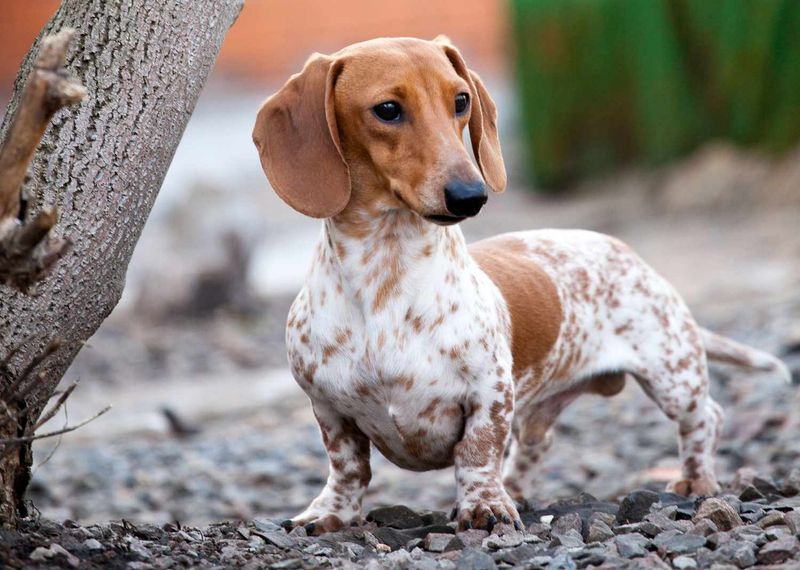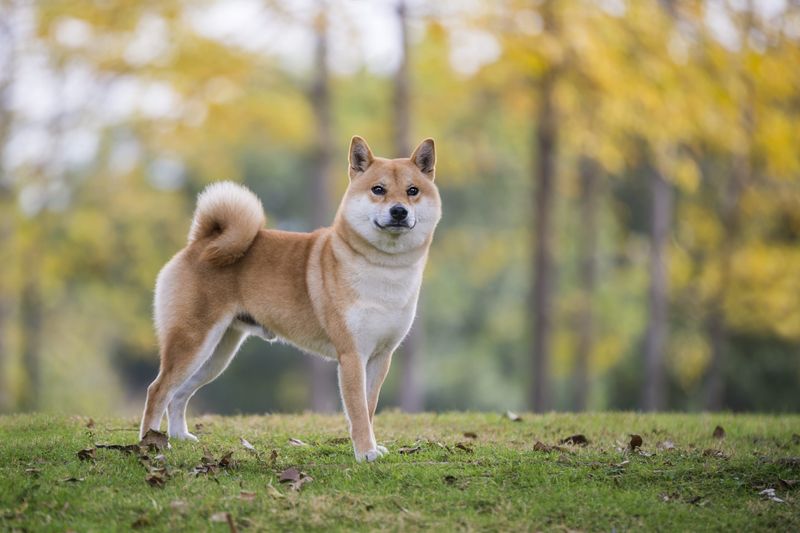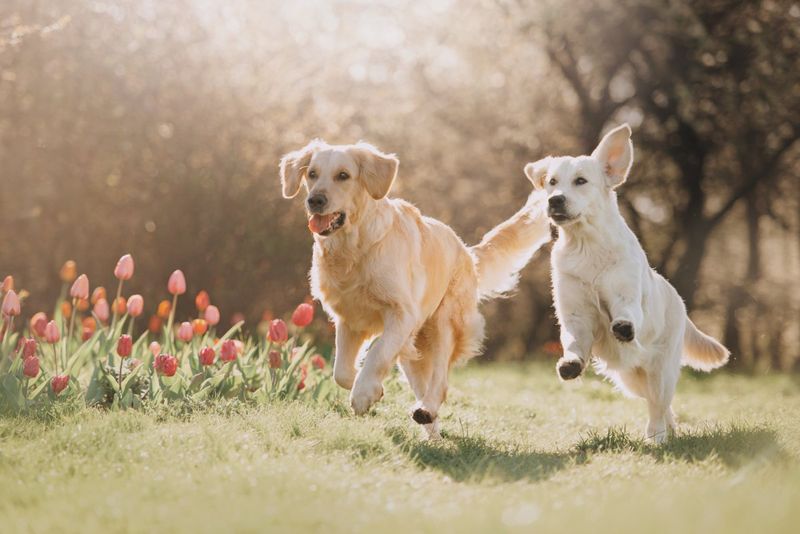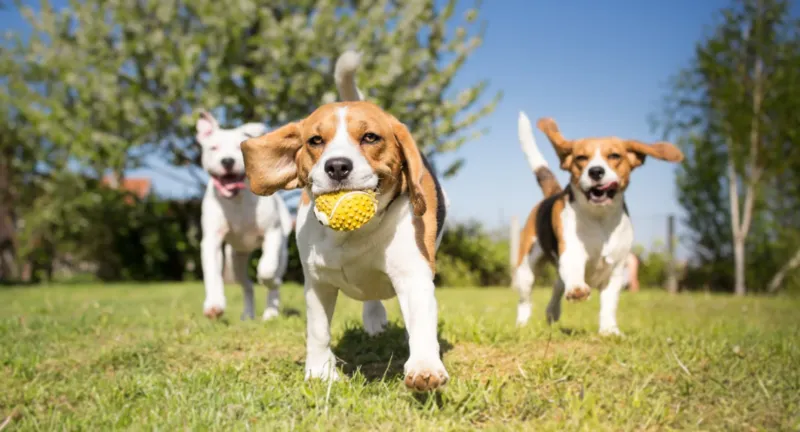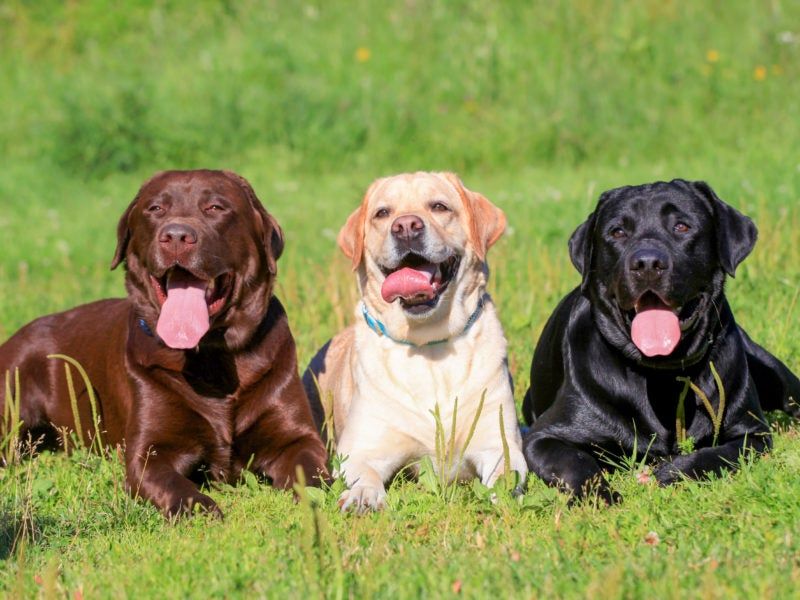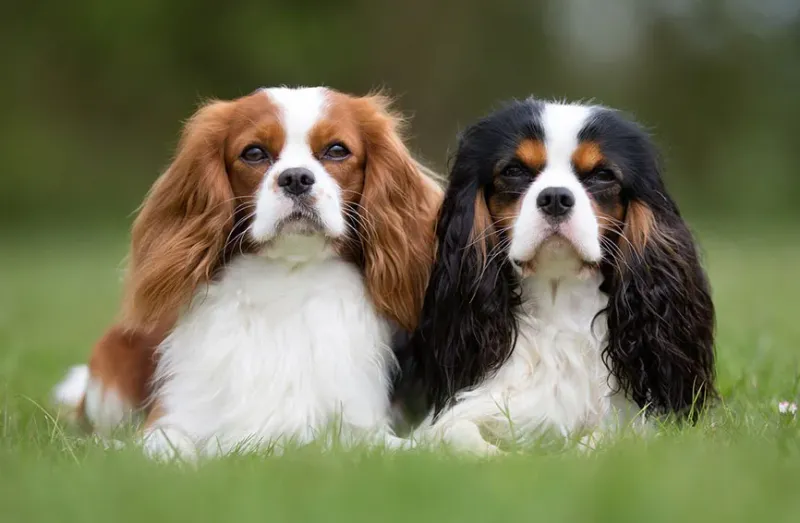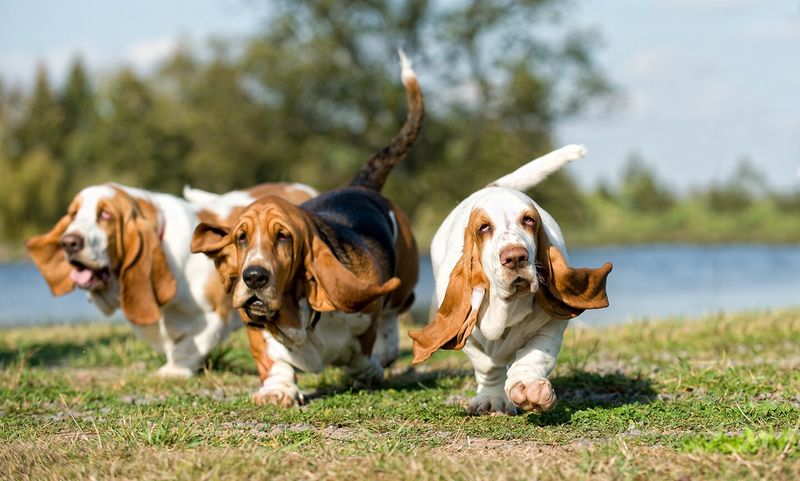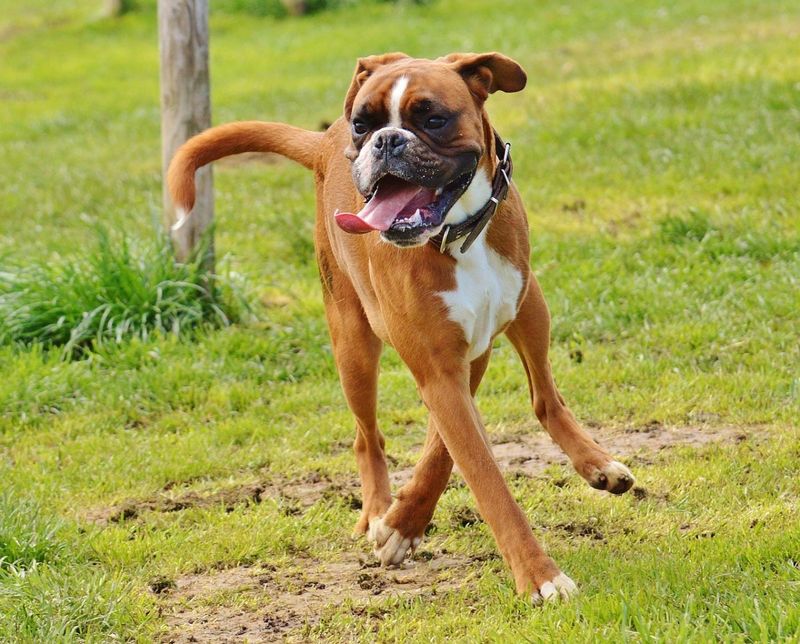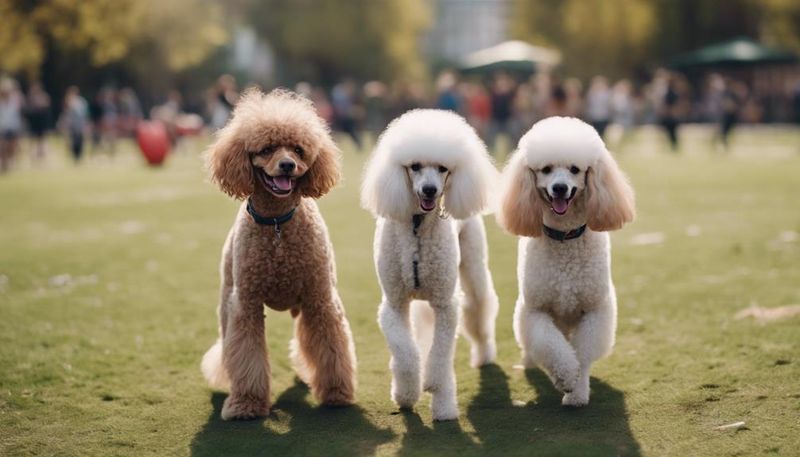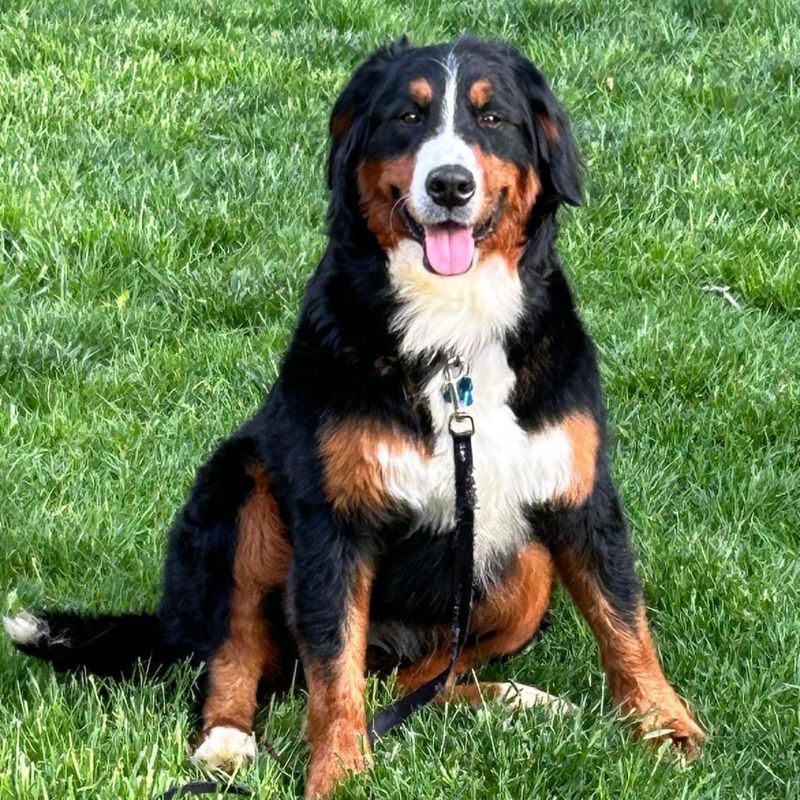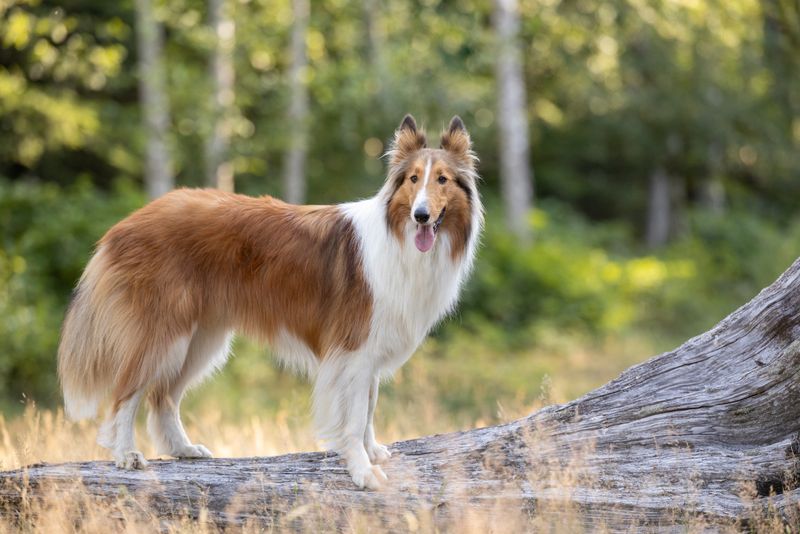Dogs have different personalities just like people do. Some pups love making friends at the dog park, while others prefer to be the only four-legged friend in your home. Understanding which breeds typically get along with other dogs – and which ones don’t – can help you choose the perfect pet for your family situation. This knowledge is especially important if you already have dogs or plan to visit dog parks regularly.
1. Chow Chows: The Independent Loners
Chow Chows have a reputation for being aloof and territorial. These fluffy lions often view other dogs as threats rather than potential playmates.
Their independent nature stems from their ancient history as all-purpose working dogs in China. Chow Chows typically bond strongly with their human family but remain suspicious of outsiders – both human and canine.
2. Akitas: Naturally Protective and Territorial
Akitas were bred as guard dogs and hunters in Japan, making them naturally suspicious of other animals. Their powerful build and fierce loyalty to family often translate to aggression toward unfamiliar dogs.
Early socialization helps, but Akitas generally prefer being the only dog in the household. Many Akita owners find that same-sex combinations are particularly challenging to maintain peacefully.
3. Pit Bulls: Often Misunderstood Dog-Selective Companions
Despite their unfair reputation, many Pit Bulls are wonderful with people. However, their history as fighting dogs means some inherit dog-aggressive tendencies.
These strong, athletic dogs may start fights they’re determined to finish. Responsible Pit Bull owners understand their dog’s individual temperament and manage interactions carefully. With proper training, many can learn to tolerate other dogs, but some remain happiest as only pets.
4. Chihuahuas: Small Dogs with Big Attitudes
Don’t let their tiny size fool you! Chihuahuas often compensate for their small stature with outsized bravado toward larger dogs. Many develop a fierce loyalty to one person and can become jealous of other animals.
Their tendency to nip when feeling threatened makes them challenging companions for other breeds. Chihuahuas frequently prefer the company of their own kind if they must share their human’s attention at all.
5. Shar-Peis: The Wrinkled Loners
Those adorable wrinkles hide a stubborn, independent spirit that doesn’t always welcome canine company. Shar-Peis were originally bred as fighting dogs in China, giving them a natural wariness toward other dogs.
Their territorial nature makes them excellent guardians but challenging playmates. Most Shar-Peis prefer human companionship to doggy friendships and may become aggressive if forced to socialize against their will.
6. Afghan Hounds: Regal and Reserved
Behind those flowing locks lies a proud, independent spirit. Afghan Hounds were bred to hunt independently, making them naturally aloof with other dogs and sometimes even their owners.
These elegant sighthounds can be standoffish and uninterested in canine companionship. Their strong prey drive may cause them to chase smaller dogs. While not typically aggressive, most Afghans simply prefer their own company to that of other dogs.
7. Rhodesian Ridgebacks: The Headstrong Hunters
Originally bred to hunt lions in Africa, Ridgebacks possess formidable strength and determination. Their high prey drive and dominant nature can create tension with other dogs, especially males of similar size.
These athletic dogs need clear leadership and boundaries. While many Ridgebacks can learn to coexist with dogs they’re raised with, they often remain wary of strange dogs and may respond aggressively if challenged.
8. Dachshunds: Small Dogs with Strong Opinions
Bred to hunt badgers underground, these little dogs pack plenty of courage and stubbornness into their long bodies. Dachshunds often have strong personalities that clash with other dogs, especially larger breeds they may view as threatening.
Their hunting instincts can trigger chasing behaviors, while their territorial nature makes them surprisingly protective. Many Dachshund owners find their little warriors prefer being the only dog receiving attention.
9. Shiba Inus: The Foxy Individualists
With their fox-like appearance comes a similarly independent and sometimes cunning personality. Shibas are primitive dogs with strong hunting instincts and a desire to be top dog.
These Japanese breeds typically form strong bonds with their families but remain selective about canine friends. Same-sex aggression is common, and many Shibas prefer solitary living arrangements. Their cat-like aloofness extends to other dogs they often simply don’t care to engage with.
10. Golden Retrievers: The Friendly Extroverts
Golden Retrievers practically define canine friendliness. Their sunny disposition and natural sociability make them excellent companions for multi-dog households.
These popular family dogs were bred to work cooperatively with humans and other dogs, retrieving game without damaging it. Their gentle mouths match their gentle temperaments. Most Goldens actively seek out playmates at dog parks and greet newcomers with enthusiastic tail wags rather than suspicion.
11. Beagles: The Sociable Pack Animals
Beagles were bred to hunt in packs, making them naturally inclined to enjoy canine company. Their friendly, curious nature typically extends to dogs of all sizes and breeds.
These happy-go-lucky hounds thrive on companionship and often suffer from separation anxiety when left alone. Many Beagle owners find having multiple dogs prevents destructive behaviors. Their non-aggressive temperament makes them wonderful playmates for other dogs.
12. Labrador Retrievers: The Easygoing Playmates
America’s most popular breed earned its status partly through its exceptional sociability. Labs typically view every new dog as a potential best friend and playmate.
Their patient, tolerant nature makes them excellent companions for puppies and older dogs alike. Bred to work alongside humans and other dogs in hunting situations, Labs naturally understand canine social cues. Their love of play and minimal aggression create ideal dog park companions.
13. Cavalier King Charles Spaniels: The Gentle Souls
Few dogs match the Cavalier’s sweet-natured friendliness toward all living creatures. These compact companions were bred specifically to be gentle lapdogs, not fighters or guardians.
Their soft temperament and lack of aggression make them wonderful additions to homes with existing pets. Cavaliers typically approach other dogs with wagging tails and playful bows rather than suspicion. Their adaptable nature helps them fit into almost any household situation.
14. Basset Hounds: The Laid-Back Companions
Those droopy eyes and ears match the Basset’s relaxed attitude toward life and other dogs. Originally pack hunters, Bassets typically enjoy canine companionship and rarely start conflicts.
Their low-key energy and patient temperament make them excellent housemates for dogs of all sizes. Bassets generally prefer sniffing and lounging to confrontation. Many owners find their Bassets form deep bonds with other household pets, often sleeping cuddled together.
15. Boxers: The Playful Extroverts
Boxers bring boundless energy and enthusiasm to dog friendships. Their playful nature and expressive faces make them natural social butterflies at the dog park.
While protective of their families, well-socialized Boxers typically distinguish between threats and playmates easily. Their patient nature with smaller dogs and puppies makes them excellent companions in multi-dog households. Boxers often become depressed without adequate social interaction with humans or other dogs.
16. Poodles: The Intelligent Socializers
Don’t let those fancy haircuts fool you – Poodles are athletic, intelligent dogs who typically enjoy canine company. Their high intelligence helps them read and respond appropriately to other dogs’ social cues.
Standard, Miniature, and Toy varieties all tend to be social butterflies when properly socialized. Their non-shedding coats make them popular choices for households with multiple dogs. Poodles’ playful nature and minimal aggression create wonderful companions for other breeds.
17. Bernese Mountain Dogs: The Gentle Giants
Despite their impressive size, Berners are known for their exceptionally gentle nature with other animals. These Swiss farm dogs were bred to work alongside other animals without conflict.
Their patient, tolerant disposition makes them wonderful companions for dogs of all sizes. Bernese Mountain Dogs rarely show aggression and typically approach new dogs with friendly curiosity. Their calm energy helps nervous dogs feel comfortable and often has a settling effect on more excitable breeds.
18. Collies: The Peacekeepers
Made famous by Lassie, Collies truly deserve their reputation for intelligence and kindness. These herding dogs naturally monitor group dynamics and often intervene to prevent conflicts between other dogs.
Their nurturing instinct extends beyond their human family to include other pets. Rough and smooth Collies alike typically display remarkable patience with puppies and smaller dogs. Their natural herding tendencies can actually help maintain order in multi-dog households.
